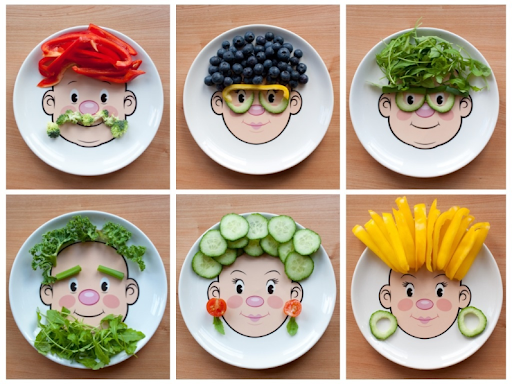CHILDHOOD IS THE KEY TO PREVENTING OBESITY IN ADULT AGE
We know that obesity is a public health problem, due to the accompanying diseases and worrying adult prevalence data. But little is said about the importance of preventing obesity in childhood .
We can look at the issue of childhood and its relationship with food from different perspectives: social, psychological and biological.
Thinking about the social and the psychological, childhood is where eating habits are built. When introducing food, the biggest mistake is to prepare baby food separately from home food. Babies should eat balanced and nutritious meals, just like adults. If there is a need to prepare a separate meal, it signals that other family members’ meals are not adequate. And what’s the problem with that, thinking about the child?

The problem is that we are beings who learn, in childhood, from imitation. We are a species that observes adults and repeats their behavior, because we infer that they have the wisdom and habits that allow us to survive. A 1-year-old baby who looks at his plate with lettuce and broccoli, while his parents ‘dishes don’t have a salad and is full of fried food, tends to reject his own meal and want his parents’. The example comes from home!
Another important point is that the relationship with food starts to be developed here. Our brain is very complex and is capable of associating feelings with food. Then going back to the previous example, the baby rejects the salad and throws a tantrum for it. If someone fights and forces him to eat the salad, he will start associating salad with negative feelings, with screaming, with a fight. This is inappropriate, since eating should bring memories of good feelings. This adverse feeling will only aggravate the rejection of the salad. The solution, again, is for parents to set an example by consuming the same thing as the baby.
Thinking about the biological, childhood and adolescence are moments of intense anabolism. Energy expenditure is immense in these two phases, due to growth. Therefore, for children and adolescents to become overweight, it is necessary that MANY calories are offered per day. And yet, this growth involves the proliferation and maturation of cells in the body, including those in adipose tissue. When an adult becomes obese, it means that their adipocytes hypertrophy, managing to store more fat in the same cell. In childhood, however, being overweight causes fat cells to multiply (that is, hyperplasia) and then hypertrophy. Having more cells storing fat, in adulthood it is much more difficult to cause that fat to be lost, due to the increased amount of adipocytes. If you want to know more details on this subject and others related to Maternal and Child Nutrition, click here to participate in the free live class and learn more about my view on the subject!

I have listed only a few of the psychosociobiological factors of childhood nutrition related to the prevention of obesity in adulthood, but we still have several others. The message I want to leave with this post is: healthy eating starts with the introduction of food, at 6 months of age! No human being, let alone babies and children, needs cookies, sweets and other ultra-processed foods. Baby and child need real food!


